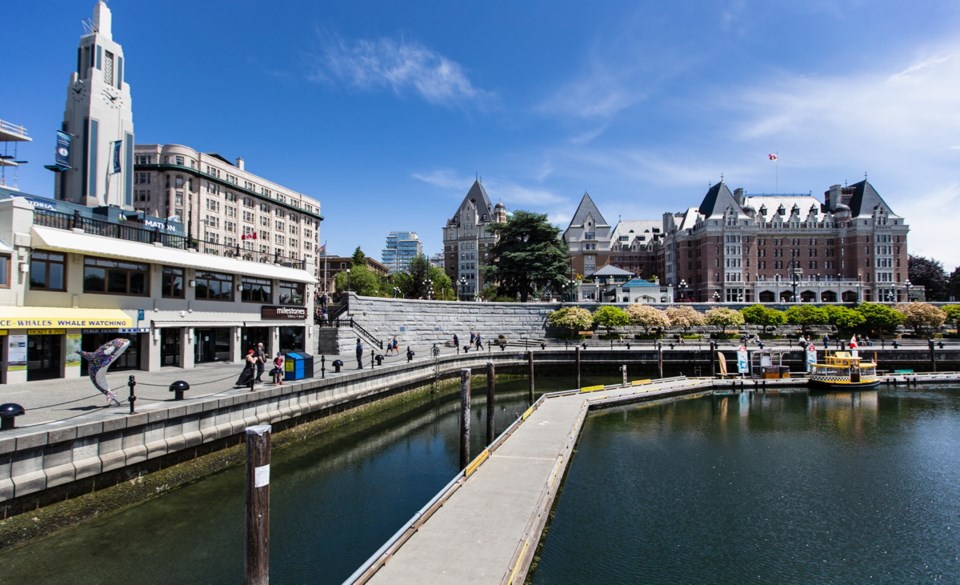A commentary by a former deputy minister in 10 ministries under five premiers, who also ran his own small business for 20 years.
The 1921 Nobel Prize winner in Literature, Anatole France, wrote: “The law, in its majestic equality, forbids rich and poor alike to sleep under bridges, to beg in the streets, and to steal bread.”
Analogously, COVID-19 policy caused non-essential worker layoffs, but that only happened in the private sector. Those affected question why the rules are not the same for non-essential public-sector workers.
Left out altogether are our grandchildren, born and unborn, who will pay the debt that will be left. The road to hell is paved with good intentions, and our politicians have been very good at spending other people’s money.
In New Zealand the prime minister, the leader of Opposition, the cabinet and all senior public servants took a 20-per-cent pay cut for six months to show solidarity with people struggling without work. I have not noticed that here.
Suicides, family violence, assaults, opioid deaths and family breakdown have risen sharply. Victoria police report a 20-per-cent increase in mental-health cases and in domestic disputes. Seniors in the Burnside Gorge neighbourhood have been invaded by street people who have been moved to a hotel next door.
Current policy is creating a majority of thankful winners and a minority of left-outs. You can see the divisions starting to build against the “all in this together” theme. A government choice looms. Allow the emergency benefits people are receiving to expire, and the problems surfacing will exacerbate, or extend them and watch our debt reach beyond the ozone layer we are at now.
Every day, we get the same information — deaths, recoveries, hospitalizations. What we do not know is what success will look like. Zero deaths across the province for two weeks? Zero hospitalizations? Why can we not be told?
Our chief medical officer is doing her job brilliantly. However, it is legitimate to ask government if the health agenda will remain primary until a vaccine is widely available, while creating employment and curing social dysfunction are secondary considerations.
No country has managed to balance re-opening the economy and returning to a more normal life without a higher health risk.
Many countries are using the “R” factor, which rates the virus’s ability to spread. The reproduction number is the number of people one infected person will pass the virus to. This allows you to estimate how quickly the virus is spreading.
If “R” is higher than one, then the number of cases increases exponentially. Lower than one and the disease will slowly peter out.
Countries opening quickly are taking risk and prevention measures to keep the number under one.
But the point is that people in those countries are told the target. When “R” is below one, we open, and when one is exceeded we pause.
They know the trigger that leads to more opening. We do not.
Cabinet made the appropriate decision to follow one source of advice to manage the pandemic, knowing the economy would suffer loses not seen since the Great Depression, and at huge costs to the taxpayer. But certainly we can chew gum and walk and as we recover and pay attention to other important matters.
Many people are fearful of a fall resurrection of the virus if it returns during flu season. Everyone knows we did so much right, but we did some things wrong. We need to learn from both to be prepared.
We need to know what the plans are for the fall. Publish the expected virus/flu infection model and targets, along with the government’s intended health response to different scenarios.
We are not mushrooms that do better in the dark; we are taxpayers and businesses and we need to plan our own lives. To do that, we need the metrics government will use to determine the timing of the phased plan implementation as well as early- warning signs of a fall outbreak.
The job of the Health Ministry is not to weigh costs and benefits of the shutdown. Job one is stop the virus, not ensure children learn and socialize in schools or adults can work.
The latter is not the medical officer’s decision, it is cabinet’s.
The World Health Organization now recommends three feet for physical distancing, not six.
Cabinet has a supportable choice to override conservative health advice.
Imagine the positive impact on restaurants able to double seating capacity and other businesses restricted by the six-foot rule. It would mean survival for many.
About 500,000 people are unemployed now in B.C. Best estimates are 200,000 will still be not working in a year if current policies continue.
The real need is customers coming back to spend with confidence, uninhibited by the fear our response is based upon, and the strict reopening parameters.
We have had a successful health plan, but when is the economic plan that will pull us out of the recession going to be presented?
For people to return to work, businesses have to reopen. At a minimum, business needs certainty on taxation, legislation and regulations. The longer this information is delayed, the longer the recession will last.
That means the longer high levels of unemployment will last and social dysfunction continue to grow. It is cabinet’s responsibility to bring these pieces forward expeditiously.
Government must stop scaring us and start to trust us, appealing to our common sense and knowing that with full information we will make sensible judgements ourselves.
- - -
To comment on this article, send a letter to the editor.
• Email: [email protected]
• Mail: Letters to the editor, Times Colonist, 2621 Douglas St., Victoria, B.C. V8T 4M2.
Letters should be no longer than 250 words and may be edited for length, legality or clarity. Avoid emailing your letter as an attachment. Please include contact information; we require your first and last name and the municipality where you live for the letter to be considered for publication.



